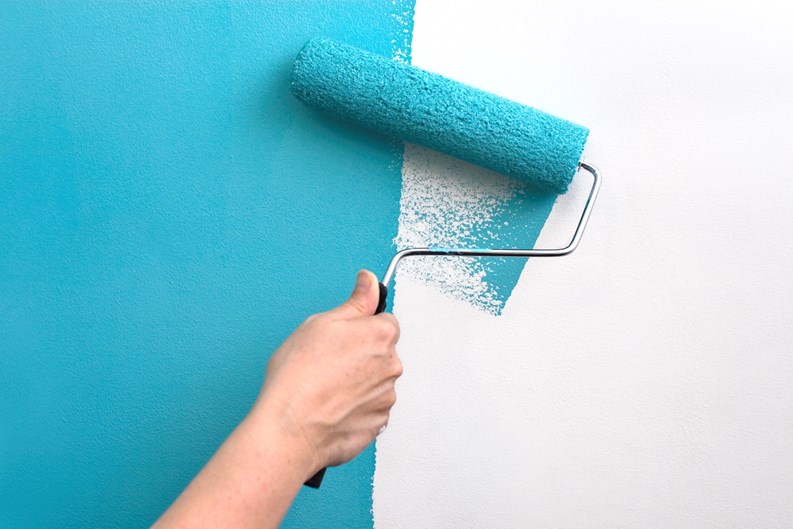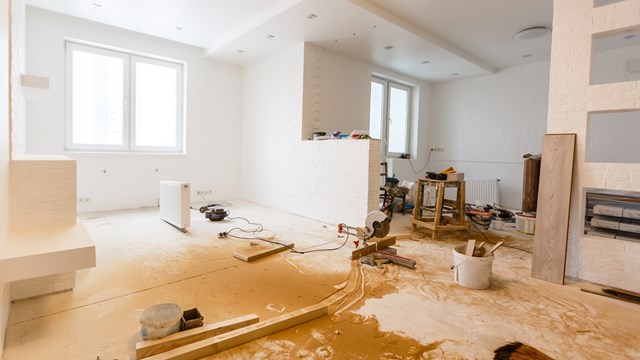Like any homeowner, co-op owners are always planning improvements to their homes. But one major difference between a cooperator and a homeowner is that the cooperator just can’t do whatever and whenever he/she wants. For example, if if the co-op owner renovates a bathroom, he or she runs the risk of flooding the downstairs neighbor. Oftentimes any work requires notification and approval of the board. With that in mind, when can a shareholder feel free to act and when should they notify and seek the permission of the board and corporation to alter their home?
Decorating Versus Renovating
Ray Levy, a board member at a pre-war co-op in Washington Heights, points out that his building doesn’t have a hard distinction about what kind of work requires board approval. “Decorating versus renovating is the guiding principle behind the board’s monitoring of shareholder work,” he says. So if a shareholder is planning on painting a bathroom themselves, that clearly falls under the category of decorating. But if the same shareholder is planning on removing fixtures and tile work, particularly when plumbing or electrical work is involved, it’s a renovation, and would require filing an alteration agreement and getting board approval.
Are You Painting, or Are You Hiring a Painter?
DIY, in many cases, has to be exactly that: ‘do-it-yourself.’ Once you hire someone, even for something as innocuous as a coat of paint, the picture changes.
“Each co-op building is different,” says Deborah Koplovitz, a co-op and condo attorney with Anderson Kill, a law firm located in Manhattan, “and you have to look at those documents carefully. Six words to live by: ‘lease by lease,’ ‘board by board.’ The most general concept is that board consent is usually required to alter an apartment. Painting may not be an alteration, or in the view of a board it may be. There are buildings that require alteration agreements for painting, and those that make sure at a minimum that the workers have insurance and that the co-op is added as an additional insured on that insurance policy. To do that, at least one agreement is required and likely two, even if not a full-blown alteration agreement. So a building may want the standard alteration agreement signed.
“It’s also important to note,” she adds, “that some proprietary leases say that the co-op’s consent to renovations/alterations cannot be unreasonably withheld. In the event a shareholder in such a case disagrees with a board’s decision, that decision would be subject to the court’s oversight and scrutiny.”
Environmental Issues
Another factor many shareholders might not be aware of is that New York has very stringent laws about lead paint and its removal, as an example. Stuart Halper of Impact Real Estate Management, with offices in New York City, Long Island, and Westchester, explains: “New York law says that buildings constructed when lead paint was commonly used, have, by definition, a lead paint condition. If you re-paint yourself—meaning the shareholder—that’s okay. But if you hire a painter, he must be lead paint-certified. It’s the co-op board’s responsibility to verify and vet the painter.”
What Is the Baseline?
For all intents and purposes, the baseline activity that separates home decorating from renovations involves structural elements. If a shareholder is intending to do work that involves or affects building plumbing, electrical systems, or structural elements such as load-bearing walls, board approval is required. Clearly, changing a switch plate or fixture doesn’t fall under this purview, but running or altering electrical lines would.
Co-ops or condos would have, at a minimum, an alteration agreement that must be submitted to the corporation or association. Permits for certain work might be required as well, depending on the scope and type of work. Ree Varela, president of The Oaks at LaTourette Condo, Section 1, in Staten Island, says: “We have to respond to alteration requests within 30 days. We’ve never turned down a reasonable request.” Additionally, Halper explains that ultimate approval and start-of-work can take longer depending on permitting. Generally the larger the job, the longer approval may take.
Finally, don’t make the mistake of trying to do renovations without permission. Co-op and condo boards are within their rights to fine you, and you might be subject to legal proceedings as well. Check with your managing agent before doing anything, even if it’s a do-it-yourself job.
AJ Sidransky is a staff writer at The Cooperator and a published novelist.







2 Comments
Leave a Comment